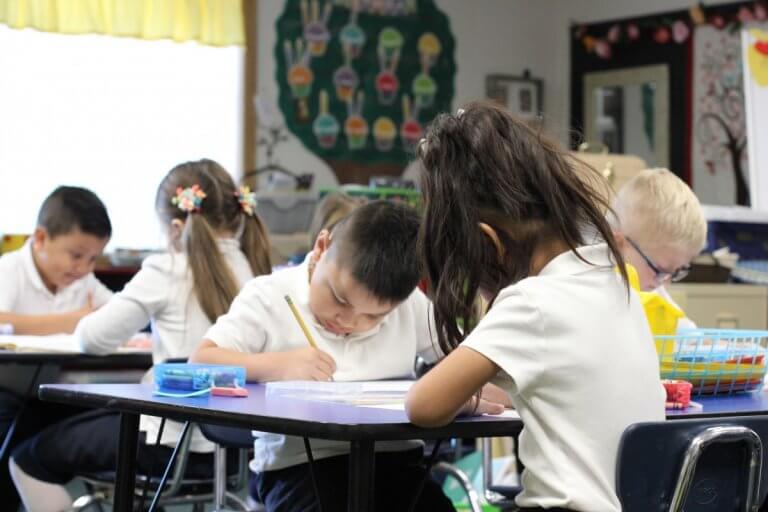
The answer most commonly given to this question in recent years is either Singapore, China or any other East Asian country. These nations usually sit at the top of the ranking for the Programme for International Student Assessment (PISA), a regular assessment of the performance of 15-year-olds around the world in science, maths and reading. So that means they must have the best teaching method, right?
Relying on the PISA results as the sole measure of maths mastery, the UK has embarked on a project to adopt East Asian methods of teaching maths. In this “mastery maths” format, the Shanghai model is adopted, also involving an exchange between English and Shanghai schools. The aim is for
English schools to learn from Shanghai whole-class interactive teaching methods.
In many schools that were involved with the first exchange in 2014-15, research has found that many have adopted the Shanghai approach, according to The Conversation. This includes encouraging more teacher-pupil interaction, learning by heart and using different ways to represent maths ideas. Their curriculum was also slowed down and more ways were taken to ensure all children get access to challenging maths.
Maths: should English schools look to Switzerland rather than Shanghai for inspiration?@MarkBoylanEd https://t.co/7NiS000om4
— The Conversation (@ConversationUK) January 28, 2019
When it comes to test scores, however, researchers found no difference between 11-year-olds’ test results from schools that adopted the mastery method and those that had not. While there was a small change among the results of seven-year-olds, there wasn’t a massive improvement in scores from the new mastery method.
If importing methods from the countries that do best in PISA doesn’t work, then what gives?
For one, it tells us that PISA isn’t the best measure to overhaul not just the UK’s but many other countries’ educational policies. For one, it diverts our attention from more important educational objectives that are less measurable or immeasurable, such as students’ physical, moral, civic and artistic development.
There’s also the consequences of putting pupils through more rounds of standardised testing. With more multiple choice tests and less autonomy for teachers, this will increase the level of stress in schools and put students’ and teachers’ well-being at risk.
Using a less narrow measure of quality, we see an expanded list of countries that do just as well in teaching maths beyond those in East Asia. The Trends in International Mathematics and Science Study (TIMSS), for example, compares the mathematics and science knowledge and skills of American students with other countries, collecting data from students at grades four and eight since 1995 every four years.
While the most recent TIMSS data collected in 2015 had the usual East Asian countries in the top ten, it also included countries like Russia, Kazakhstan, Canada and Ireland. Canada has been dubbed an “education superpower” for its top ranking performance in PISA and TIMSS. Its success is traced to its commitment to equality in schools, promoting a strong sense of fairness and accessibility despite having different policies in individual provinces.
Speaking to the BBC, Professor John Jerrim of the UCL Institute of Education in London, says that Canada’s high league table ranking reflects the narrow socio-economic gap in school results.
Rather than a country of extremes, Canada’s results show a very high average, with relatively little difference between advantaged and disadvantaged students.

After Shanghai, the UK turns its focus to Russian schools. Source: Shutterstock
Another country that stands out is Russia. Some of the best A-level results in the UK are from specialist maths schools that are inspired by Russia’s super-selective maths and physics institutions. More than 40 percent achieved an A* result in maths at the Exeter Mathematics School, whereas at the King’s College London Mathematics School, that figure rises to 100 percent of pupils achieving either an A* or A in maths.
Liked this? Then you’ll love…
Here’s how UK schools plan to catch up with Asia’s maths whizzes
Students may need this skill as much as maths and literacy to succeed in life







